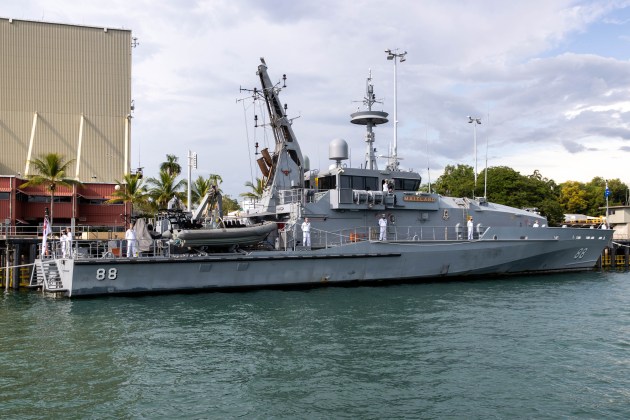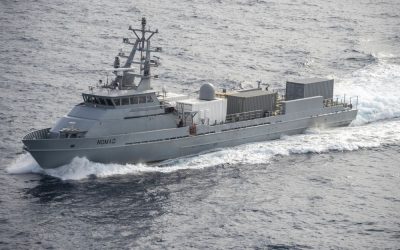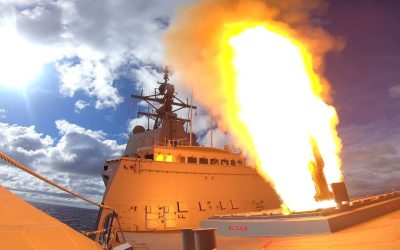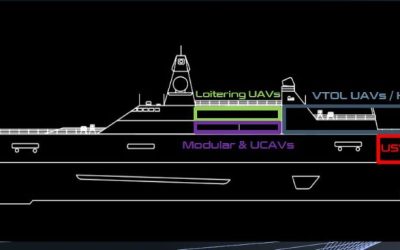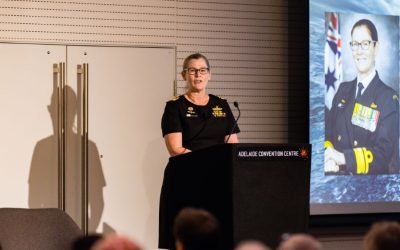In October 2022, Austal Australia took possession of a decommissioned Armidale-class patrol boat, the former HMAS Maitland, from the Commonwealth of Australia, to commence planning, modification, and test and evaluation of autonomous and remotely operated systems.
The Patrol Boat Autonomy Trial (PBAT) is a collaboration between Austal, the Trusted Autonomous Systems Defence Cooperative Research Centre and the Royal Australian Navy Warfare Innovation Navy (WIN) branch.
The aim of the trial is to establish robotic, automated and autonomous elements on a patrol boat, providing a proof-of-concept demonstrator for optionally crewed or autonomous operations for the Royal Australian Navy. The trial will also explore the legal, regulatory pathways and requirements of operating an autonomous vessel at sea.
Following the arrival of the vessel in Henderson, Western Australia, the vessel, re-named Sentinel, has entered the modification phase, which includes fitting of a range of monitoring and control systems and technologies that will enable autonomous and remote operations.
From July 2023, the vessel is expected to be registered under Australian Maritime Safety Authority (AMSA) jurisdiction as a domestic commercial vessel to enable sea trials to commence October 2023.
The PBAT project aims to significantly progress the concept of remote operations and the autonomous certification approach; increase the understanding of fuel management, communication, and navigation systems to be made autonomous; and investigate and understand the operation of shipboard mechanical systems without crew intervention, including systems of redundancy and reliability to support operations at sea for extended periods.
The project also aims to provide input to long-term risk reduction for future naval projects, considering remote or autonomous vessels. This will be extended to other sensors and autonomous vehicles once the initial trial is complete. Another important objective is to transfer lessons learned on the application of remote or autonomous systems to the Royal Australian Navy’s current fleet, to potentially optimise crew workload, reduce workload and increase operational safety by reducing human error.
